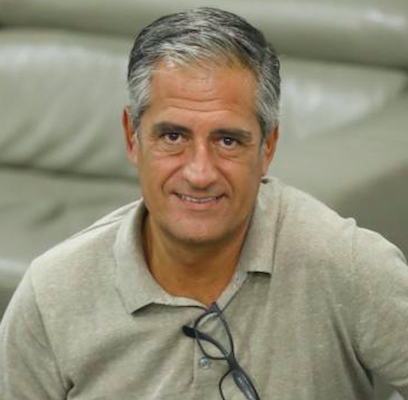Who I Am and Why I Write
Lluís Prats
Why do I write, they ask me. I would have said, abruptly and off the top of my head, that I have no idea. But while I was thinking about the answer you’ve just read, it occurred to me that the papers I write, sometimes turning into novels and sometimes not, are a form of introspection. I travel back to childhood, to a time when a book or a film in the Sunday afternoon double session took you away from the greyness of the last years of the Franco dictatorship and the early years of democracy.
I think I owe my passion for reading (and later, writing) to a novel we read aloud in class in the third or fourth year of primary school. It was called El zoo d’en Pitus (Pitus’s Zoo). I loved it, identified with it, and felt it very intensely. I’ve never read it again because it’s still fresh in my mind and I don’t want to break the magic I felt when I was nine years old. What certainly struck me were the good feelings: the ideals, the goodness, and the intentions of the characters. The same thing they were at great pains to inculcate in me at home. Nowadays, in some American universities, they say that goodness is one of the fundamental features of intelligence. Over the years, after having spent thousands of hours teaching children and adolescents, I realise that, yes, the most intelligent people I’ve known are often very good people: from a Kantian, Aristotelian, Christian, or atheist point of view, or whatever, but human. And it is this humanism that, in a naïve, improbably innocent way, I try to write. I remember Lluís Llach saying that if we ask a child some day what he or she wants to be when grown up and the answer is a good person then we will be on the right track to the future. That’s what I mean.
Once, someone told me you write because you have something to say. Maybe that’s true. In most of the novels I’ve written, from Hachiko. El gos que esperava (Hachiko: The Dog That Waited), through to La petita coral de la senyoreta Collignon (Miss Collignon’s Little Choir), and Kambirí, there is a common thread: to show, to indicate, and never pontificating (I think that ideas, like love, can’t be imposed because you often achieve the opposite effect), that happiness doesn’t consist in trampling all over others, or being “the richest in the cemetery”, but in making the word a kinder place. Over time, I’ve found out that, for me, writing is ferociously committed. Emotions, compassion, tenderness, others, are important in the things I write.
There’s a delicate balance between the story and the way you tell it. In my case, I always try to ensure that this construction of sensibility between container and contained is proportional. By this I mean, that the prose, the right word, shouldn’t undervalue the story or vice versa. This is why the most important part of the process, without the slightest doubt, is rewriting (15-20 revisions and constantly) to find the word, the metaphor, the most fitting image while keeping the balance I’ve just mentioned.
I’d like it if, someday, my readers remember that author who made them feel things, moved them. For me, all these things are small certainties I cling to like a shipwrecked man. When I was young, I liked watching films where the good guys won, and the lovers ended up kissing. In that regard, I am a totally Capra- or Capri-style (Frank and Joan, respectively) author: happy ending.
If I can get young and not-so-young people to enjoy the prose that I try to ensure is delicate, if in twenty or thirty years’ time, they remember that, when they were young, they were moved by a book, and that this led them to look for others they would enjoy, I would say that this laborious adventure is well paid for by its uncertain benefits.
Lluís Prats, 2020




